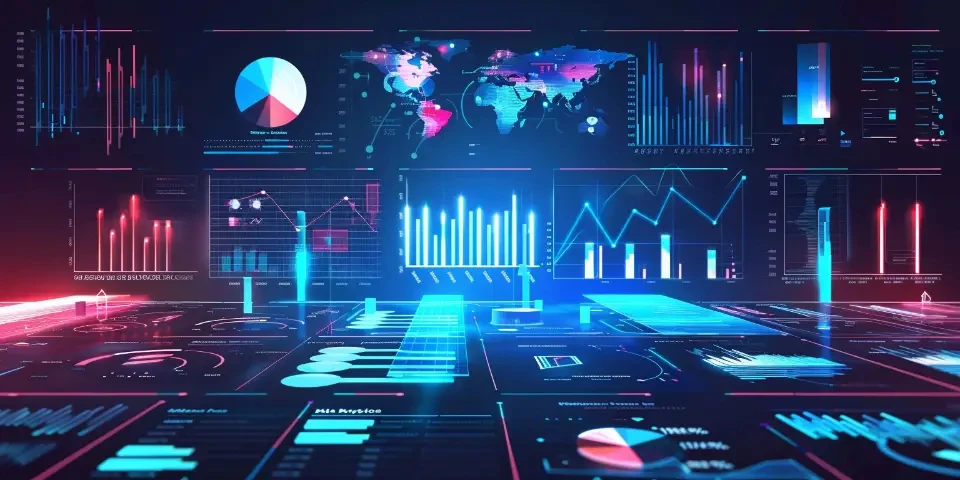The agriculture industry plays a crucial role in feeding the world's growing population. With the advancement of technology, Artificial Intelligence (AI) has emerged as a powerful tool that is revolutionizing the way farming is done. From crop monitoring to automated harvesting, AI is transforming every aspect of agriculture. Let's explore how AI is reshaping the agriculture industry.
1. Precision Farming
Precision farming is a technique that involves using AI algorithms to analyze data collected from drones, satellites, and sensors placed in fields. This information helps farmers make informed decisions regarding the optimal use of water, fertilizers, and pesticides. AI-powered systems can identify specific areas of a field that require attention, reducing waste and increasing efficiency.

For example, John Deere's AI tool, called the "John Deere Operations Center," allows farmers to monitor the health of their crops, track equipment performance, and manage farm operations such as planting and harvesting. This technology enables farmers to maximize yields while minimizing costs, ultimately leading to sustainable farming practices.
2. Crop Monitoring and Disease Detection
AI technology enables farmers to monitor their crops more effectively. Using computer vision and machine learning algorithms, AI systems analyze images of plants to detect diseases, nutrient deficiencies, and pest infestations. This early identification helps farmers take timely action, preventing the spread of diseases and minimizing crop damage.
An excellent example is Plantix, a mobile app that uses AI to identify crop diseases. Farmers can simply take a photo of an affected plant and upload it to the app. The AI analyzes the image and provides accurate diagnoses and recommendations for treatment. This empowers farmers with knowledge and reduces the reliance on costly pesticide usage.
3. Autonomous Farming Equipment
AI is transforming agricultural machinery into self-driving vehicles and autonomous robots. These machines are capable of performing various tasks, such as planting seeds, spraying pesticides, and harvesting crops, with high precision and efficiency.
One notable example is the Blue River Technology's "See & Spray" system. Equipped with computer vision and machine learning algorithms, it can detect individual plants and apply targeted herbicide sprays only where necessary. This eliminates the need for broad-spectrum spraying, reducing chemical use and environmental impact.
4. Weather Monitoring and Predictions
AI algorithms combined with weather data enable farmers to make informed decisions regarding planting, irrigation, and harvesting schedules. AI models can process large amounts of historical and real-time weather data to predict future weather patterns and provide accurate forecasts.
The Weather Company, an IBM-owned platform, employs AI to provide precise weather insights for agricultural planning. Farmers can access this data through mobile apps or software and plan their activities accordingly. This helps optimize resource usage and minimize losses due to extreme weather conditions.
5. Livestock Monitoring and Management
AI is not limited to crop farming; it also revolutionizes livestock management. Smart wearable devices equipped with sensors and AI algorithms enable farmers to monitor the health, behavior, and well-being of their livestock more effectively.
For instance, the company Connecterra developed an AI-powered collar called "Ida." This collar collects data on the cow's behavior and movements, detecting any deviations from normal patterns, which might indicate health issues. Farmers receive real-time alerts and can take immediate action, improving animal welfare and overall productivity.
6. Soil Analysis and Optimization
AI can analyze soil composition and quality, enabling farmers to make informed decisions regarding nutrient management and fertilizer application. By collecting and analyzing data from various sources, such as soil samples and satellite imagery, AI algorithms can provide accurate recommendations for optimizing soil health.
The company Taranis utilizes AI and high-resolution imagery to analyze soil conditions and detect potential problems such as nutrient deficiencies. Farmers can then apply targeted solutions, reducing fertilizer waste and improving overall soil fertility.
7. Supply Chain Optimization
AI can optimize the supply chain in agriculture, ensuring seamless operations from farm to table. AI-powered algorithms analyze various factors, such as demand, transportation routes, and storage conditions, to optimize logistics and minimize food waste.
Companies like AgShift use AI to accurately assess the quality and shelf life of fruits and vegetables at different stages of the supply chain. This helps reduce food waste by ensuring that only high-quality produce reaches the consumers, increasing overall efficiency and sustainability.
8. Farm Robotics
AI-powered robots are transforming labor-intensive agricultural operations. These robots can perform tasks such as pruning, weeding, and sorting crops with high precision, reducing the need for manual labor and increasing productivity.
Examples of such robots include the Vision Robotics' "Harvest Cropper" and the Abundant Robotics' "Robotic Apple Picker." These robots use AI algorithms to identify ripe fruits and pick them without causing any damage, significantly improving efficiency and reducing harvest labor costs.
FAQs:
Q: Can AI completely replace human farmers?
A: While AI can automate various agricultural tasks, human farmers play a crucial role in decision-making and adapting to dynamic conditions. AI works as a powerful tool to assist farmers rather than replacing them entirely.
Q: Is AI affordable for small-scale farmers?
A: The cost of AI technology has been decreasing over time due to advancements and increased availability. However, it may still be a significant investment for small-scale farmers. Collaborations and partnerships with organizations or governments can help make AI more accessible to smaller farmers.
Q: Can AI help reduce pesticide usage?
A: Yes, AI-powered systems can accurately identify pest infestations and diseases, allowing farmers to target treatments only where necessary. This targeted approach reduces the need for broad-spectrum pesticide usage, leading to environmentally friendly farming practices.
Embark on a journey of discovery with Wemate AI, where we’ll analyze why office supplies have characters and backstories! They need their time to shine too!






